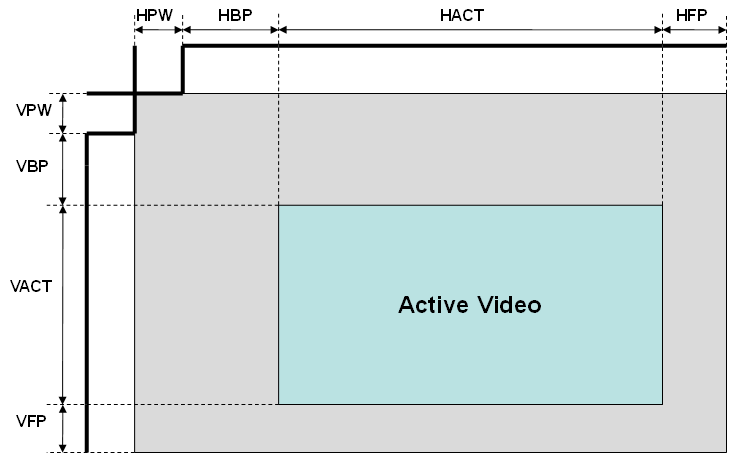JAJSQ80C september 2013 – october 2020 SN65DSI86
PRODUCTION DATA
- 1
- 1 特長
- 2 アプリケーション
- 3 概要
- 4 Revision History
- 5 Description (continued)
- 6 Pin Configuration and Functions
- 7 Specifications
-
8 Detailed Description
- 8.1 Overview
- 8.2 Functional Block Diagram
- 8.3 Feature Description
- 8.4
Device Functional Modes
- 8.4.1 Reset Implementation
- 8.4.2 Power-Up Sequence
- 8.4.3 Power Down Sequence
- 8.4.4 Display Serial Interface (DSI)
- 8.4.5
DisplayPort
- 8.4.5.1 HPD (Hot Plug/Unplug Detection)
- 8.4.5.2 AUX_CH
- 8.4.5.3 I2C-Over-AUX
- 8.4.5.4 DisplayPort PLL
- 8.4.5.5 DP Output VOD and Pre-emphasis Settings
- 8.4.5.6 DP Main Link Configurability
- 8.4.5.7 DP Main Link Training
- 8.4.5.8 Panel Size vs DP Configuration
- 8.4.5.9 Panel Self Refresh (PSR)
- 8.4.5.10 Secondary Data Packet (SDP)
- 8.4.5.11 Color Bar Generator
- 8.4.5.12 DP Pattern
- 8.4.5.13 BPP Conversion
- 8.5 Programming
- 8.6 Register Map
- 9 Application and Implementation
- 10Power Supply Recommendations
- 11Layout
- 12Device and Documentation Support
- 13Mechanical, Packaging, and Orderable Information
8.4.4.6 Video Format Parameters
It is the responsibility of the GPU software to program the DSIx6 Video Registers with the Video format that is expected to be displayed on the eDP panel. The DSIx6 expects the parameters in Table 8-7 to be programmed. The DSIx6 will use these parameters to determine the DisplayPort MSA parameters that are transmitted over DisplayPort every vertical blanking period. These MSA parameters are used by the eDP panel to recreate the video format provided on the DSI interface.
 Figure 8-11 Video Format
Figure 8-11 Video FormatTable 8-7 Video Format Parameters
| PARAMETER | DESCRIPTION | DSIx6 REGISTER |
|---|---|---|
| HPOL | Used to specify if the HPW is high or low. | CHA_HSYNC_POLARITY |
| HPW | The width of the Horizontal Sync Pulse in pixels | {CHA_HSYNC_PULSE_WIDTH_HIGH, CHA_HSYNC_PULSE_WIDTH_LOW} |
| HBP | The size of the Horizontal Back Porch in pixels | CHA_HORIZONTAL_BACK_PORCH |
| HACT | The length, in pixels, of the active horizontal line. | {CHA_ACTIVE_LINE_LENGTH_HIGH, CHA_ACTIVE_LINE_LENGTH_LOW} + {CHB_ACTIVE_LINE_LENGTH_HIGH, CHB_ACTIVE LINE_LENGTH_LOW} |
| HFP | The size of the Horizontal Front Porch in pixels. | CHA_HORIZONTAL_FRONT_PORCH |
| HTOTAL | Total length, in pixels, of a horizontal line. | HPW + HBP + HACT + HFP |
| VPOL | Used to specify if the VPW is high or low | CHA_VSYNC_POLARITY |
| VPW | The width of the Vertical Sync Pulse in lines. The width must be at least 1 line. | {CHA_VSYNC_PULSE_WIDTH_HIGH, CHA_VSYNC_PULSE_WIDTH_LOW} |
| VBP | The size of the Vertical Back Porch in lines. The size must be at least 1 line. | CHA_VERTICAL_BACK_PORCH |
| VACT | The number of vertical active lines. | {CHA_VERTICAL_DISPLAY_SIZE_HIGH, CHA_VERTICAL_DISPLAY_SIZE_LOW} |
| VFP | The size of the Vertical Front Porch in lines. The size must be at least 1 line. | CHA_VERTICAL_FRONT_PORCH |
| VTOTAL | The total number of vertical lines in a frame. | VPW + VBP + VACT + VFP |